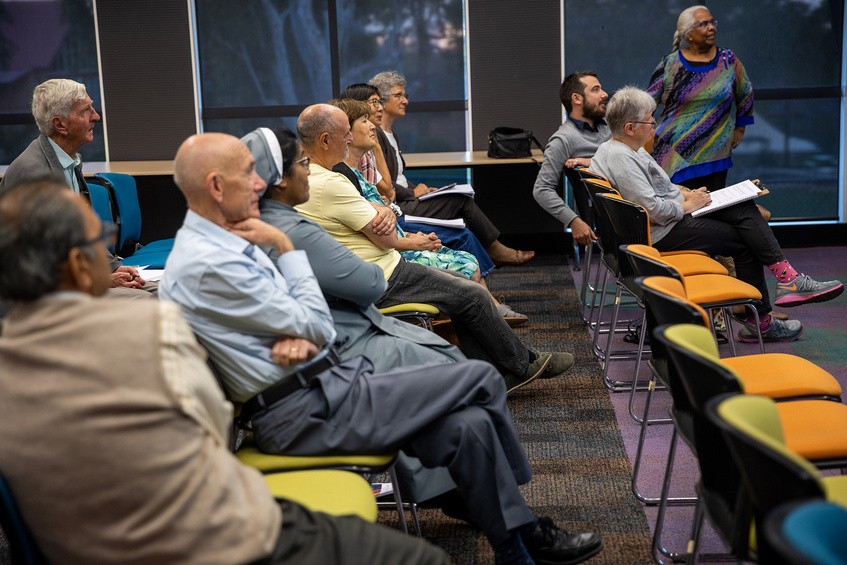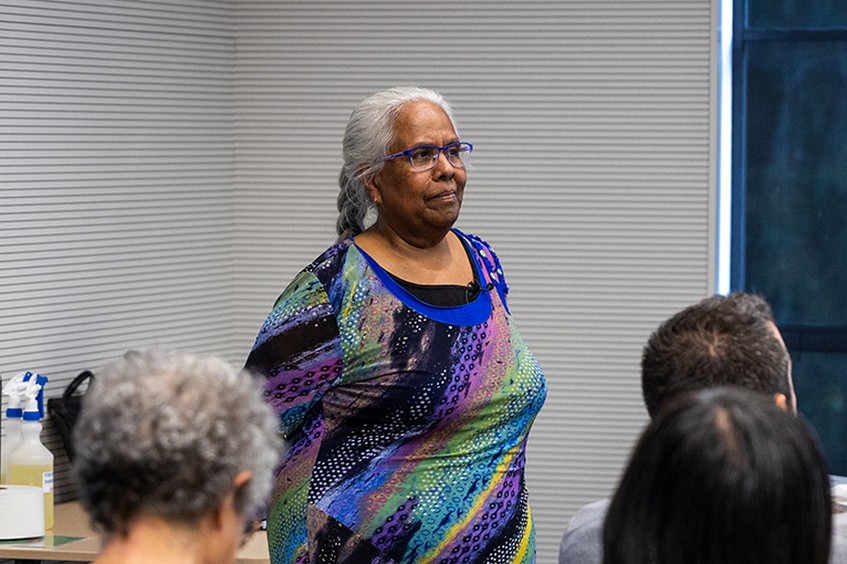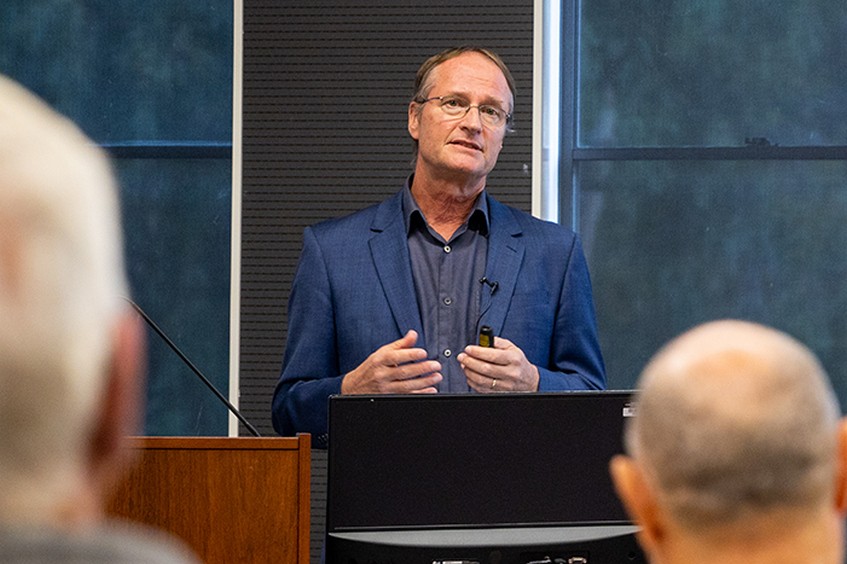Plenary Council: Welcoming a greater openness to and celebration of diverse cultures in Australia

The Archdiocesan Centre for Faith Enrichment hosted their third seminar based on the Plenary Council thematic paper, addressing the need for the Church in Australia to be Inclusive, Participatory and Synodal on Thursday 19 November at Newman Siena Centre.
By Amanda Murthy
Discovering a Christ-centred Church that is Inclusive, Participatory and Synodal was at the heart of conversation and reflection on Thursday 19 November at Newman Siena Centre.
This is the third of six seminars addressing the six discernment themes of the Plenary Council and is an on-going effort by the Archdiocesan Centre for Faith Enrichment (CFE), to create avenues where the faithful can gather in person to reflect, discern and share their faith experiences based on the published thematic discernment papers found here.
Delivering the seminar were West Australian Catholic Migrant & Refugee Office (WACMRO) Director, Deacon Gregory Lowe and Aboriginal Catholic Ministry (ACM) Director Donella Brown, who began by explaining some of the valuable contributions that people from the Indigenous communities and migrants play in our country.
“In striving to be a more inclusive, participatory and synodal Church, there’s encounter and dialogue that needs to take place,” Dcn Lowe said.
“Through these encounters and dialogue, we look at how we as a Catholic community can break down these barriers, but in a Catholic way that will build our community and promotes our faith development.”
The group then participated in a personal reflection on the topic of ‘spiritual listening’ based on a video provided by ACM.

Aboriginal Ministry Director Donella Brown shared her wisdom and experiences along with West Australian Catholic Migrant & Refugee Office Director Deacon Greg Lowe at a Plenary Council seminar, discussing the theme of ‘inclusive, participatory and synodal’ on 19 November at Newman Siena Centre. Photo: Max Hoh.
Explaining the meanings of the theme, Dcn Lowe embraced the statement reflected in the thematic paper, explaining that, “Inclusion does not mean embracing ideology but rather listening to persons of difference and their stories and responding to the call to self-examination and conversion in the light of the Gospel truth that is conveyed by such stories.”
“It is in listening to others, the minority groups, that we can truly move forward,” Dcn Lowe said.
Ms Brown then shared an experience of three ladies that joined the Aboriginal parish communities and felt welcomed.
“I think the key to why these people expressed how welcomed they felt being around the Aboriginal communities, despite some of them not being Aboriginal, is that we received them with joyfulness and love,” Ms Brown said.
“We can learn something from this sharing – we can strive to build relationship with our brothers and sisters no matter what background they come from, we can stay connected through sharing our faith, and not seeing differences will definitely bring us forward.”
The duo then touched on the topic of welcoming difference and welcoming the newcomer in faith communities.
“If as Church we get to know the human person, in their cultural context first of all, then the answers of how to be welcoming and including will naturally and generously start suggesting themselves,” Dcn Lowe cited.

Dcn Lowe spoke about the need to welcome the newcomer and welcome differences in the Catholic communities during a Plenary Council seminar, discussing the theme of ‘inclusive, participatory and synodal’ on 19 November at Newman Siena Centre. Photo: Max Hoh.
“We always tend to put the weight on the Church and take us out of the equation – but really, we are the Church, and we as the people of God have this responsibility if we want to achieve this Church that moves into the future,” Ms Brown added.
Dcn Lowe then spoke about what it means to be participatory as a Church.
“To be allowed to participate fully in an existing communal structure is a form of neighbour love because it offers opportunity for those on the periphery to participate at the centre of the communal life. ‘by reason of their baptism’, lay Christians have the right to participate in the sacred Liturgy,” he stated.
“Part of being a participatory Church is to be one that values integral human development, overcoming any insecurities that may arise.
“We want to make people feel secure – that their contributions are valued and that if they want to share it with someone else, that is okay too,” he added.
Finally, Dcn Lowe shared that communication is key when it comes to working towards being a synodal Church.
“Just like Saint Francis Assisi, clarify and seek understanding first before you jump in and start judging the situation – that is humility,” Dcn Lowe cited.
“Having good communication and deep listening, go away and reflect, and it can take time, but having this Plenary Council process is an opportunity for us to listen – but how we do it, and how well we do it, is what will count,” Ms Brown concluded.
The next Plenary Council seminar at CFE will explore the theme: ‘How is God calling us to be a Christ-centred Church in Australia that is Prayerful and Eucharistic?’.
